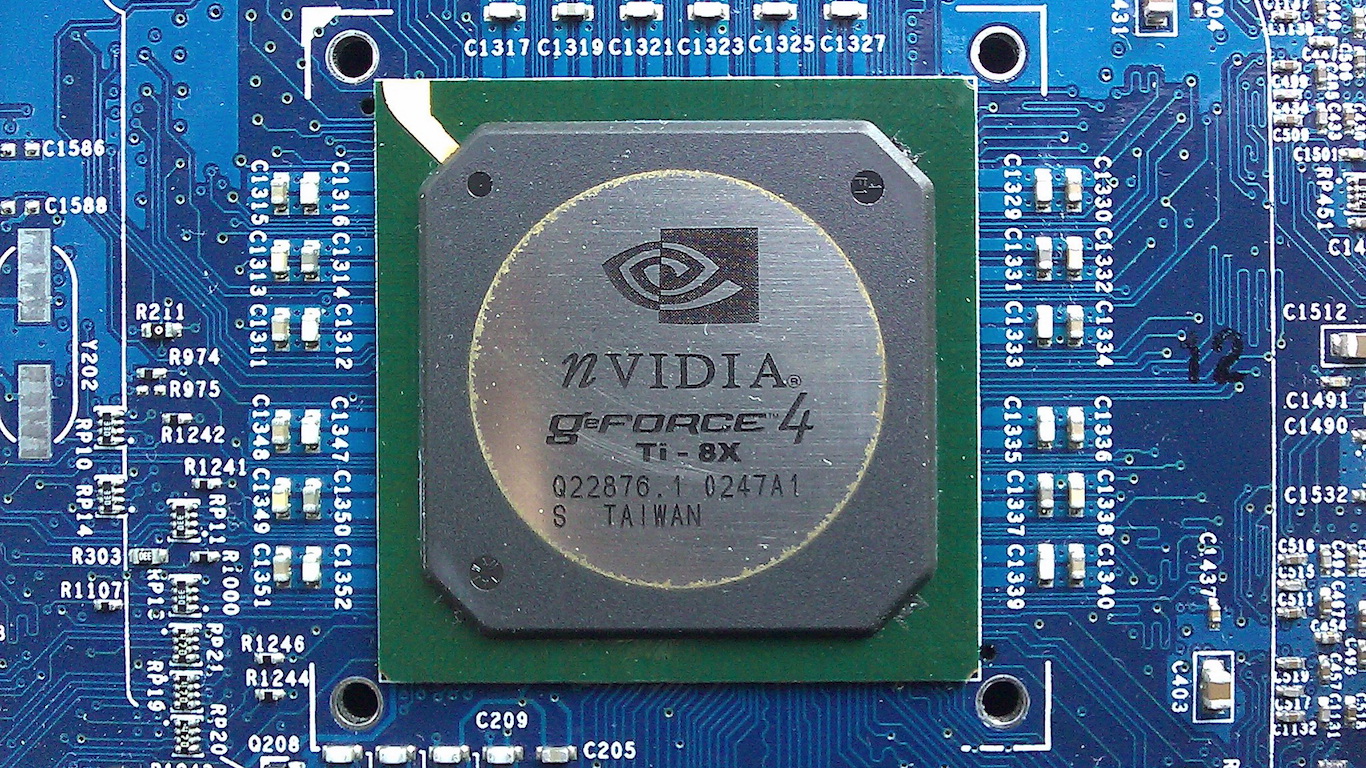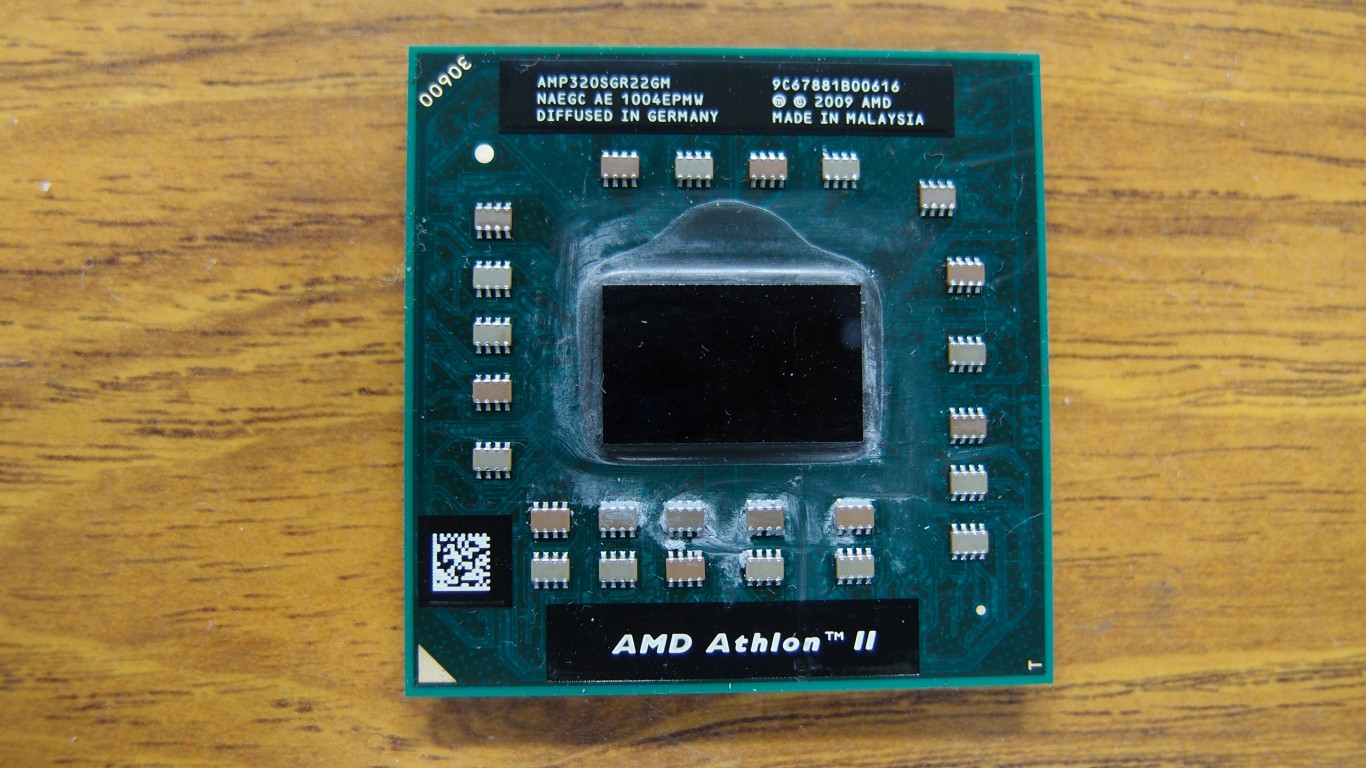
Artificial intelligence (AI) is a concept that’s been around since 1950, when Alan Turing first coined the term. Although present in various forms for decades, recent tech advancements have finally made true AI a reality. The launch of OpenAI’s ChatGPT in November 2022 reignited industry interest, sparking a rush among tech companies to capitalize on AI’s potential. This surge in excitement has driven the Nasdaq Composite’s impressive 68% return since early 2023.
In recent years, artificial intelligence (AI) has become a key investment theme. Although the initial excitement around AI stocks has cooled, investing in solid companies with proven AI technologies remains wise, as these tools drive efficiency and productivity. Despite recent near-term dips seen among many AI stocks tied to macroeconomic concerns, tech giants continue to benefit from AI and could continue to see outsized revenue and earnings growth over the long-term, if these technologies pan out.
For those looking to identify some of the top ways to play the growth of top AI stocks, here are three I think are worth considering.
Key Points About This Article:
- Artificial intelligence technology has been around for a long time, but has grown in importance in recent years, as investors pile into companies that can directly benefit from these trends.
- The following three AI stocks certainly represent some of the best growth opportunities for those bullish on the future impacts of this technological revolution.
- If you’re looking for some stocks with huge potential, make sure to grab a free copy of our brand-new “The Next NVIDIA” report. It features a software stock we’re confident has 10X potential.
Nvidia (NVDA)

Nvidia (NASDAQ:NVDA) stock surged nearly 30% in two weeks before its earnings report, though the stock was lower heading into this report on Wednesday, and dropped another 6% in after hours trading after its latest beat-and-raise quarter. The company also announced a $50 billion stock buyback, but these factors simply weren’t enough to take its share price higher following the release.
Indeed, Nvidia remains among the top AI stocks investors continue to focus on due to the company’s status as a top AI chip maker. In terms of picks-and-shovel plays in the AI race, Nvidia will likely remain the top option in this space for some time.
Bank of America’s Vivek Arya recently labeled Nvidia as a top “rebound” stock, predicting a recovery in the fourth quarter as seasonal challenges ease. Goldman Sachs’ Scott Rubner recommended buying on dips, anticipating a market turnaround by late August and new highs post-election. Nvidia and other chip stocks fell in July due to fears over U.S. export controls to China and Trump’s comments on Taiwan. Additionally, the company’s recent drop following its Q2 earnings report highlight concerns around Nvidia’s Blackwell series rollout, margin pressures, and concerns over large AI investments from Nvidia’s major clients like Microsoft and Google.
That said, I do think Nvidia stock is well-positioned to continue to grow. If Wall Street analyst estimates of $5 in EPS for 2025 are hit, at a 40-times earnings multiple, this is a stock that could trade at $200 per share next year. Perhaps that’s an overly bullish target. But given how Nvidia has performed in the past, I’m of the view it’s more likely than a 40% drop from here.
Taiwan Semiconductor (TSM)

Taiwan Semiconductor Manufacturing Company (NYSE:TSMC), the largest global chip fabricator, dominates this market with 60% of foundry spending due to its advanced chip manufacturing processes. This enables TSMC to produce powerful, energy-efficient chips crucial for AI and smartphones. Its immense scale and revenue allow significant investment in research and development, securing its position as an industry leader and making it difficult for competitors to challenge its dominance.
The high demand for TSMC’s services benefits the company’s customer base, and investors, in a big way. In July, TSMC set a revenue record with 257 billion New Taiwan dollars (US$8 billion), a 45% year-over-year increase. Last quarter, it saw revenue rise 40% (33% in USD) and net income grow 36%, with two-thirds of its revenue coming from its most advanced chip processes.
TSMC broke ground on its first European factory in Dresden, Germany, as part of the EU’s strategy to localize key supply chains. German Chancellor Olaf Scholz and European Commission President Ursula von der Leyen attended the ceremony, with von der Leyen calling it a boost for Europe’s innovation standing. TSMC is investing €3.5 billion ($3.9 billion) in the project, holding a 70% stake, while Dutch chipmaker NXP, Germany’s Infineon, and Bosch each hold 10%.
Advanced Micro Devices (AMD)

In Q2, Advanced Micro Devices (NASDAQ:AMD) reported positive results, exceeding earnings and revenue forecasts. Adjusted EPS came in at 69 cents, surpassing the 68-cent estimate, and revenue hit $5.84 billion, above the $5.72 billion expectation. Following the announcement, AMD’s stock rose 4.36%. For Q3 2024, AMD expects revenue to reach $6.7 billion, reflecting a projected 16% year-over-year growth.
AMD announced the acquisition of ZT Systems for $4.9 billion in cash and stock, aiming to enhance its data center AI and customer solutions. While some investors view this as a bid to compete with Nvidia, Wedbush sees it as a strategic move to bolster AMD’s position in the $236 billion data center market. AMD is expected to focus on ZT’s design and services, shedding its manufacturing assets. The deal follows a 115% year-over-year increase in AMD’s data center revenue and could strengthen its market presence despite ongoing challenges in other areas like gaming GPUs.
AMD CEO Lisa Su stated that acquiring ZT Systems would boost GPU sales. The company plans to sell ZT’s server manufacturing unit post-acquisition, avoiding competition with firms like Super Micro Computer. AMD remains focused on capturing market share in AI chips, currently dominated by Nvidia with 80% of the market.
It’s Your Money, Your Future—Own It (sponsor)
Are you ahead, or behind on retirement? For families with more than $500,000 saved for retirement, finding a financial advisor who puts your interest first can be the difference, and today it’s easier than ever. SmartAsset’s free tool matches you with up to three fiduciary financial advisors who serve your area in minutes. Each advisor has been carefully vetted and must act in your best interests. Start your search now.
If you’ve saved and built a substantial nest egg for you and your family, don’t delay; get started right here and help your retirement dreams become a retirement reality.
Thank you for reading! Have some feedback for us?
Contact the 24/7 Wall St. editorial team.





